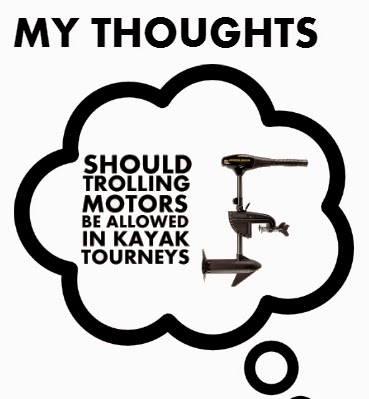It's time I weighed in.
Last week was fun. Watching the discussions take place, civility prevailing in most instances and people sharing their thoughts. That was the ultimate goal. Decisions were being made in future tournaments without a large group of people being talked to about it. That gave me pause and I wanted to know, not just have a gut feeling, what the majority would like to see in tournaments.
A few caveats before I weigh in. I am just one guy. This is just my opinion. If you keep reading and you get a little angry, please take a deep breath and realize the world keeps turning if we disagree. I don't run tournaments so you are in no danger of me fouling up what you are doing or may want to do in the future. I've thought a lot about this. I know there will always be outlying situations, exceptions made and that's good. We should never be too rigid so when circumstances out of the norm arise we can be inclusionary rather than exclusionary. This opinion is based on most of the people in most of the tournaments most of the time and my experiences over the last decade. Mine. Yours may have been different. Mine.
This issue has two pretty well defined lines that ultimately helped me make my decision (opinion). The first is kayak propulsion. The second is state regulations.
Kayak propulsion can be divided into two distinct categories: human propelled and not human propelled. Whether you move the kayak through the water with your arms or legs, the human body exerts energy to make the kayak move. Sometimes that uses pedals. Sometimes that uses a paddle. Either way, without an exertion from kinetic motion from a human body, the kayak doesn't go. Sails are a different discussion for a different day. The question is trolling motors.
A trolling motor on a kayak is not human propelled. Little to no exertion is needed to move from one place to another. To me, that is a defining line.
State regulations are another. Though some states differ, the prevailing law is that a water vessel with a motor, electric or gas, must be registered, classifying it as a motor powered vessel. That's a pretty big line. The state of Texas obviously feels there is a significant difference between a kayak and a kayak with a trolling motor. Different rules apply.
Many have cited, well what about a wounded veteran, who is an amputee and can't but wants to compete? These would be exceptions that would have to be granted by the tourney directors and written into the bi-laws. It should also state that in very specific language. That is part of the flexibility I talked about earlier. I do have one friend who has no legs and loves to fish. I visited with him about the question at hand. He stated it would become problematic if there were lots of wind because he would not be able to brace against anything going into the wind. It makes sense and was something I had not thought about. That would be an obvious exception that could be made.
Age has also been thrown around as a line but that supposed line is very blurry. I fish with several guys over 60 who can paddle circles around others. Should we assume that all people 60 and older are frail, can't keep up and should be coddled in their own division or allowed other means like a trolling motor? I know my friends would not and do not want to be treated differently. They also constantly put the whoop down on the younger guys.
So enough circling. Prepare the hate mail if you wish. Here is how I see it.
Trolling motors should not be allowed under normal circumstances in kayak tournaments. At that point, it's a boat tournament, not a kayak tournament. Should there be rare exceptions? Sure, as left up to the tournament directors discretion there should be. It should be rare though.
If you advertise yourself as a kayak tournament, no trolling motors. If you are a fishing tournament, have divisions or whatever you want. Be clear with what your goals are, what your participants can expect and do not hide it in the fine print. Be up front.




